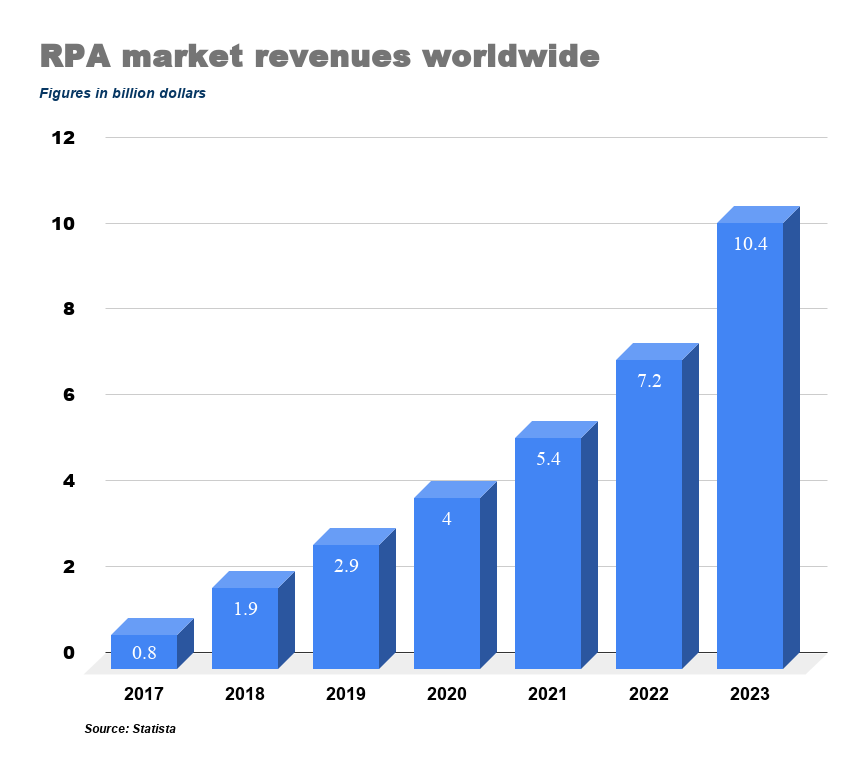Saudi German Hospital, one of the largest healthcare providers in the UAE, is automating its end-to-end business processes by using AI-powered software bots to help improve patient care and reduce patient waiting times.
The software bots are provided by Automation Anywhere and deployed by Advansys ESC.
Automation Anywhere and Advansys ESC worked with Saudi German Hospital to identify automation opportunities in its insurance and finance departments that typically handle high-volume manual processes, such as insurance eligibility, insurance pre-authorisation and patient enrollment.
“The automation capabilities will allow us to add value and support caregivers in the treatment process by providing deeper insights on the patient’s specific condition, lifestyle and patient behaviour in real-time,” Dr. Reem Osman, Group CEO of Saudi German Hospitals UAE, said.
She added that the cognitive and AI technology infusion will empower its “Intelligent Patient Platform” to expand competencies and deliver better outcomes.
Because of Covid-19, Milan Sheth, Executive Vice-President for India, Middle East and Africa at Silicon Valley-based Automation Anywhere, said that RPA is seen not as a replacement of human workers but as resiliency and most of the big banks’ operations did not suffer during the pandemic because they had bots as backups.
Sheth said that there are three sectors in the Middle East where there is a tremendous uptake - government-owned enterprises, financial services, energy and utility sectors but healthcare and life sciences are seeing an increase due to Covid-19.
Automation Anywhere is one of the three biggest RPA companies in the world, alongside UiPath and Blue Prism.
“Intelligent automation empowers healthcare organisations to perform more time-consuming, manual tasks, freeing up staff to treat an increased number of patients by improving hospital efficiencies,” Sheth said.
Moreover, he said that medical systems impacted by the global pandemic are seeing how automation technology can have a huge impact on a patient's progress by implementing bots for processes, such as simplifying patient appointment scheduling, streamlining account settlements and managing healthcare workflows. All of this time saved can go right back into patient care.
“We have built products to automate the workforce for a modern enterprise. Between the UAE and Saudi Arabia, there will be more and more demand for expanding the digital workforce. It will create more jobs locally and instead of offshoring, you are bringing it back using technology and deliver productivity,” he said.

One of key business priorities
Manish Ranjan, Program Manager for Software and Cloud at IDC, said, that spending on RPA solutions in the Middle East and Africa region will represent an almost four-fold increase and a strong annual growth rate of 33% for a five year forecast period of 2019 to 2024.
He added that spending on RPA in the UAE is expected to grow 44.8% year on year in 2020 to reach over $11 million.
According to a latest IDC CIO survey, about 36% of CIOs said they are going to spend more on RPA in 2020 compared to their pre-Covid-19 plans.
During the current pandemic, Ranjan said that one of the key business priorities for both public and private sector is to ensure business continuity by providing better services, improved customer experience, enhanced collaboration across departments and improved business process automation. RPA can contribute to each of these priorities, by enhancing efficiency and agility across the organisation, he said.
Within healthcare, he said that RPA is being used to manage the influx of patient appointments, managing healthcare workflow and healthcare cycle, streamlining claim processes, speeding up the processing of various information and data entry etc.
from TechRadar - All the latest technology news https://ift.tt/301PBKg
Aucun commentaire: